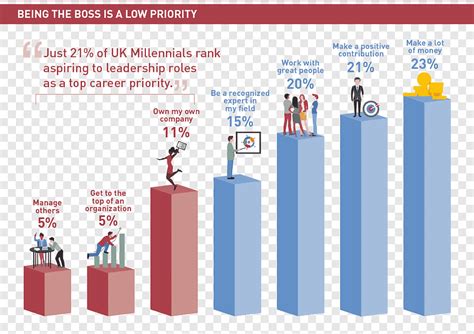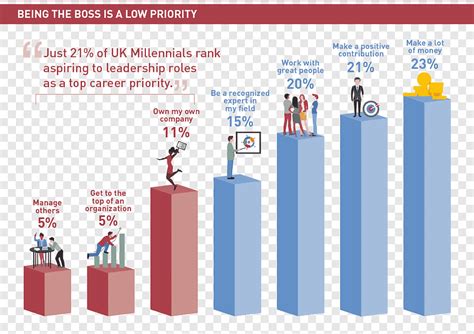
Millennials are increasingly feeling pressured to climb the corporate ladder quickly, leading to potential burnout as they strive for promotions and higher salaries in a demanding job market. This relentless pursuit, fueled by social media comparisons and economic anxieties, is causing many to question the traditional career trajectory and its impact on their overall well-being.
The pressure to advance rapidly is taking a toll, according to a recent Yahoo Finance article featuring insights from millennial professionals. Many report feeling compelled to prioritize career advancement over personal fulfillment, resulting in increased stress and a sense of imbalance. One millennial, quoted in the article, said they felt “older, further behind, and constantly anxious about my career trajectory.” This sentiment reflects a growing trend among young professionals who are navigating a competitive landscape while grappling with societal expectations and the ever-present influence of online platforms showcasing seemingly perfect careers. The article delves into the reasons behind this phenomenon, exploring the economic factors, social pressures, and changing attitudes towards work that are contributing to the millennial burnout epidemic.
The drive for upward mobility is deeply ingrained in many millennials, shaped by factors such as the 2008 financial crisis and the rise of social media. Witnessing economic instability early in their careers instilled a sense of urgency to secure financial stability, leading many to prioritize career advancement above all else. Social media platforms, while offering connection and networking opportunities, also fuel comparison and create a constant pressure to project an image of success. This can lead to a cycle of overwork and burnout as individuals strive to keep up with the perceived achievements of their peers.
Beyond external pressures, changing attitudes towards work are also playing a role. While previous generations often viewed work as a means to an end, many millennials seek purpose and fulfillment in their careers. This desire for meaningful work can lead to greater dedication and effort, but it can also create disappointment if their jobs fail to meet their expectations. The pursuit of purpose, combined with the pressure to climb the corporate ladder, can create a recipe for burnout as individuals push themselves beyond their limits in search of both professional success and personal satisfaction.
The article highlights the importance of recognizing the signs of burnout and taking steps to prioritize well-being. This includes setting boundaries, practicing self-care, and seeking support from friends, family, or mental health professionals. Additionally, it encourages employers to create a more supportive work environment that prioritizes employee well-being and fosters a culture of open communication. By addressing the root causes of millennial burnout, both individuals and organizations can work towards a more sustainable and fulfilling approach to career development.
The pervasive nature of social media, particularly platforms like LinkedIn and Instagram, significantly exacerbates the pressure millennials feel regarding their career progression. These platforms often showcase curated versions of professional lives, highlighting achievements and promotions while rarely displaying the struggles and setbacks that are a natural part of any career journey. This constant exposure to seemingly perfect careers can lead to feelings of inadequacy and anxiety, fueling the desire to constantly strive for more, regardless of the personal cost. The result is a heightened sense of competition and a diminished ability to appreciate one’s own accomplishments.
Furthermore, the gig economy, while offering flexibility and autonomy, also contributes to the pressure to constantly be working and advancing. The lack of traditional job security and benefits can create a sense of precarity, leading individuals to take on multiple projects or side hustles in an effort to increase their income and build a more stable financial foundation. This constant hustle can be exhausting and can blur the lines between work and personal life, making it difficult to disconnect and recharge. The pressure to constantly be “on” can ultimately lead to burnout and a decline in overall well-being.
The impact of economic instability, particularly the 2008 financial crisis, cannot be overstated. This event shaped the early careers of many millennials, instilling a deep-seated fear of job loss and financial insecurity. As a result, many prioritized career advancement and financial stability above all else, often sacrificing personal fulfillment and well-being in the process. The experience of witnessing widespread job losses and economic hardship created a sense of urgency to secure a stable career path, leading to a generation that is highly focused on achieving financial success. This focus, while understandable given the economic climate, has contributed to the pressure to climb the corporate ladder quickly and relentlessly.
The desire for purpose and meaning in work is another key factor driving the millennial burnout epidemic. Unlike previous generations, many millennials are not content to simply work for a paycheck. They seek jobs that align with their values and allow them to make a positive impact on the world. This desire for meaningful work can be a powerful motivator, but it can also lead to disappointment if their jobs fail to meet their expectations. The pressure to find a career that is both fulfilling and financially rewarding can be overwhelming, leading to a constant search for the “perfect” job and a sense of dissatisfaction with their current situation. This can result in increased stress and a feeling of being stuck in a career that is not aligned with their values.
Addressing the issue of millennial burnout requires a multifaceted approach that involves both individual and organizational changes. Individuals need to prioritize their well-being by setting boundaries, practicing self-care, and seeking support from friends, family, or mental health professionals. It is also important to challenge the societal pressures and expectations that contribute to the pressure to climb the corporate ladder. This includes questioning the definition of success and redefining what it means to have a fulfilling career.
Organizations also have a responsibility to create a more supportive work environment that prioritizes employee well-being. This includes offering flexible work arrangements, providing access to mental health resources, and fostering a culture of open communication. It is also important for organizations to recognize and reward employees for their contributions, not just their ability to climb the corporate ladder. By creating a more supportive and inclusive work environment, organizations can help to reduce the pressure on millennials and promote a more sustainable approach to career development.
The long-term consequences of millennial burnout are significant, both for individuals and for the economy as a whole. Burnout can lead to a decline in physical and mental health, reduced productivity, and increased turnover. It can also damage relationships and lead to a sense of isolation and hopelessness. For the economy, millennial burnout can result in a loss of talent, reduced innovation, and a decline in overall productivity. Addressing this issue is therefore crucial for ensuring the long-term health and prosperity of both individuals and the nation.
One crucial aspect often overlooked is the role of mentorship and guidance. Many millennials feel lost and uncertain about their career paths, lacking the support and mentorship they need to navigate the complexities of the modern workplace. This lack of guidance can contribute to the pressure to climb the corporate ladder quickly, as individuals attempt to emulate the success of others without understanding the nuances and challenges involved. Providing access to experienced mentors who can offer advice, support, and encouragement can help millennials to make more informed career decisions and avoid the pitfalls of burnout.
Furthermore, the focus on climbing the corporate ladder often neglects the importance of lateral moves and skill development. In today’s rapidly changing job market, it is becoming increasingly important to be adaptable and to continuously acquire new skills. Lateral moves, which involve taking on different roles within an organization, can provide valuable experience and exposure to different aspects of the business. This can broaden one’s skillset and make them more valuable to the organization in the long run. However, the pressure to constantly move upwards can discourage individuals from pursuing lateral moves, limiting their growth and potential.
The rise of remote work, while offering flexibility and convenience, also presents its own set of challenges. The blurring of lines between work and personal life can make it difficult to disconnect and recharge, leading to increased stress and burnout. The lack of social interaction and face-to-face communication can also contribute to feelings of isolation and loneliness. Organizations need to be mindful of these challenges and provide support to remote workers, such as access to virtual social events and opportunities for collaboration.
In conclusion, the pressure to climb the corporate ladder is taking a significant toll on millennials, leading to widespread burnout and a questioning of traditional career trajectories. This phenomenon is driven by a complex interplay of economic factors, social pressures, and changing attitudes towards work. Addressing this issue requires a multifaceted approach that involves both individual and organizational changes. By prioritizing well-being, challenging societal expectations, and creating more supportive work environments, we can help millennials to navigate their careers in a more sustainable and fulfilling way. The future of work depends on it. The relentless pursuit of upward mobility, fueled by economic anxieties and social media pressures, is creating a generation of burned-out professionals who are questioning the very definition of success. Burnout isn’t just an individual issue; it’s a systemic problem reflecting deeper issues within workplace culture. The emphasis on constant productivity and availability, often reinforced by technology, blurs the boundaries between work and personal life. This can lead to chronic stress, sleep deprivation, and a diminished capacity to enjoy activities outside of work. The long-term consequences of this imbalance extend beyond individual well-being, affecting productivity, morale, and retention rates within organizations. Companies that prioritize employee well-being and foster a supportive work environment are better positioned to attract and retain top talent.
The pressure to constantly acquire new skills and stay ahead of the curve can also contribute to burnout. The rapid pace of technological change requires individuals to be lifelong learners, constantly updating their knowledge and skills to remain relevant in the job market. This can be a daunting task, particularly for those who are already struggling to balance work and personal life. Organizations need to provide opportunities for employees to develop new skills without adding to their existing workload. This can include offering training programs, mentorship opportunities, and flexible work arrangements that allow employees to pursue their professional development goals.
The emphasis on individual achievement can also create a competitive and cutthroat work environment. This can lead to a lack of collaboration and a reluctance to ask for help, as individuals fear appearing weak or incompetent. Organizations need to foster a culture of collaboration and support, where employees feel comfortable sharing their challenges and seeking assistance from their colleagues. This can involve creating opportunities for team-building activities, promoting open communication, and recognizing the contributions of individuals and teams.
The societal pressure to achieve financial success can also contribute to the pressure to climb the corporate ladder. Many millennials are burdened with student loan debt and face the challenge of affording housing, healthcare, and other essential expenses. This can create a sense of urgency to earn more money, leading individuals to prioritize career advancement above all else. Addressing this issue requires a broader societal effort to address income inequality and provide greater access to affordable education, housing, and healthcare.
The role of leadership is also crucial in addressing the issue of millennial burnout. Leaders need to set a positive example by prioritizing their own well-being and encouraging their employees to do the same. This can involve taking time off, disconnecting from work outside of business hours, and promoting a culture of work-life balance. Leaders also need to be mindful of the workload and expectations they place on their employees, ensuring that they are reasonable and sustainable. By creating a supportive and inclusive work environment, leaders can help to reduce the pressure on millennials and promote a more healthy and productive workforce.
Ultimately, addressing the issue of millennial burnout requires a fundamental shift in our understanding of success. We need to move away from the traditional emphasis on climbing the corporate ladder and towards a more holistic view of career development that encompasses personal fulfillment, well-being, and purpose. This requires individuals, organizations, and society as a whole to challenge existing norms and expectations and to create a new paradigm for work that is more sustainable, equitable, and fulfilling. Frequently Asked Questions (FAQ)
1. What is the main reason millennials are experiencing career burnout? Answer: The primary reason is the immense pressure to rapidly climb the corporate ladder, driven by factors like economic anxieties stemming from events such as the 2008 financial crisis, constant social media comparisons showcasing seemingly perfect careers, and a strong desire for purpose and fulfillment in their work. This combination creates a relentless cycle of overwork and stress as millennials strive for both professional success and personal satisfaction.
2. How does social media contribute to millennial career burnout? Answer: Social media platforms, particularly LinkedIn and Instagram, often present a curated and idealized version of professional life. This constant exposure to seemingly perfect achievements can lead to feelings of inadequacy and anxiety, fueling the desire to constantly strive for more, regardless of the personal cost. The pressure to maintain a successful online persona adds to the overall stress and contributes to burnout.
3. What role did the 2008 financial crisis play in shaping millennial career attitudes? Answer: The 2008 financial crisis instilled a deep-seated fear of job loss and financial insecurity in many millennials. Witnessing widespread economic hardship led them to prioritize career advancement and financial stability above all else, often sacrificing personal fulfillment and well-being in the process. This focus, while understandable given the economic climate, has contributed to the pressure to climb the corporate ladder quickly and relentlessly.
4. What can organizations do to help prevent millennial career burnout? Answer: Organizations can implement several strategies, including offering flexible work arrangements, providing access to mental health resources, fostering a culture of open communication, recognizing and rewarding employees for their contributions (not just promotions), and promoting work-life balance. They should also encourage mentorship programs and discourage a culture of constant availability and overwork. Leadership should set a positive example by prioritizing their own well-being and encouraging employees to do the same.
5. What are some personal strategies millennials can use to combat career burnout? Answer: Millennials can prioritize their well-being by setting boundaries between work and personal life, practicing self-care (e.g., exercise, hobbies, relaxation techniques), seeking support from friends, family, or mental health professionals, challenging societal pressures to constantly climb the ladder, and redefining their personal definition of success. They should also consider seeking mentorship and focusing on skill development and lateral moves rather than solely pursuing promotions.









